On November 23, the second round of the CSIG Youth Talent Support Forum was held at HUST. Renowned experts and scholars attending the event engaged in heated discussions on image and graphics studies and shared their latest research outcomes.
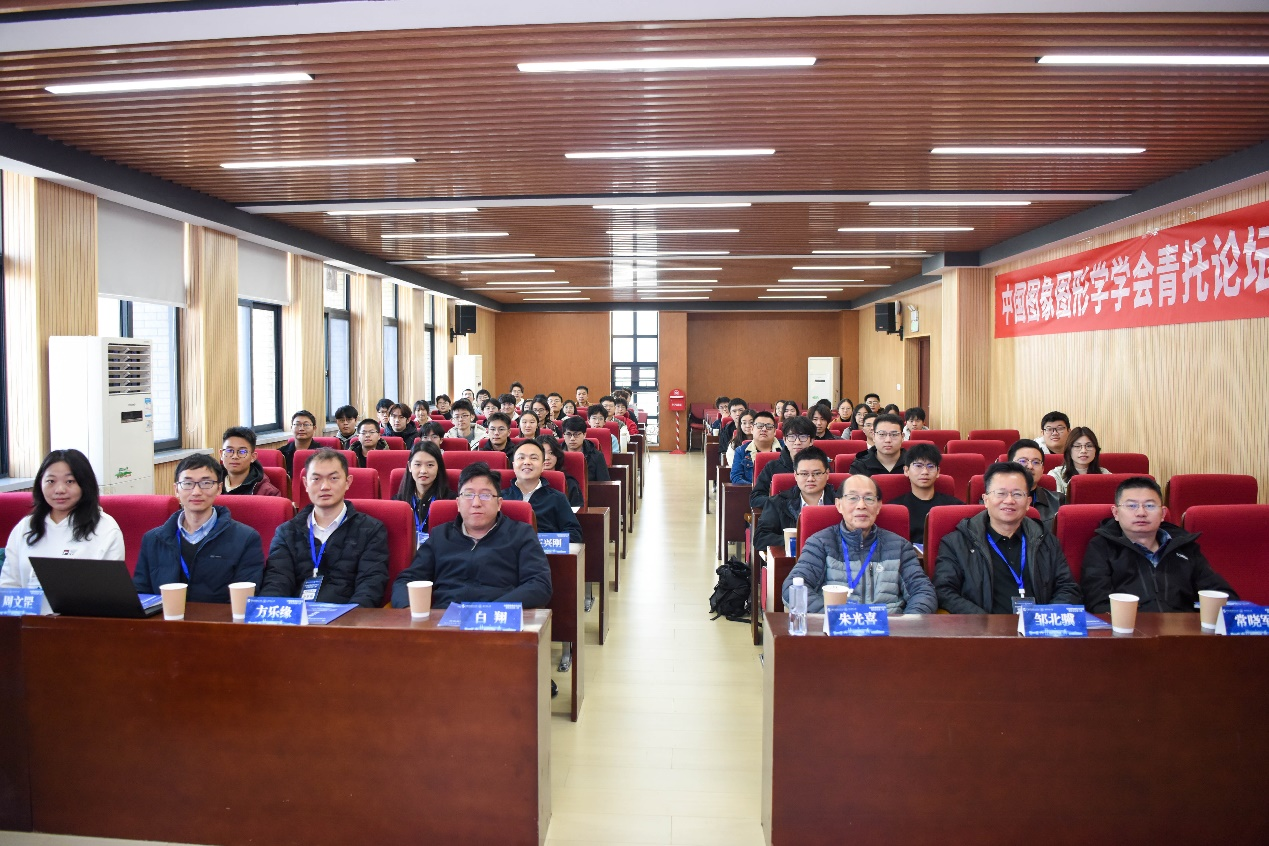

The forum kicked off at the lecture hall of the School of Software Engineering (SSE). Bai Xiang, Dean of SSE and Director of CSIG Youth Work Committee, addressed the event. He mentioned that the Youth Club had provided young scholars with enormous opportunities for development. He hoped the forum could facilitate exchange among young scholars and interaction with cerebrated experts and encourage the participation of doctorate and post-doctorate students. Then, Wei Xiucan, President of the Youth Club, introduced its history, membership, and future planning.
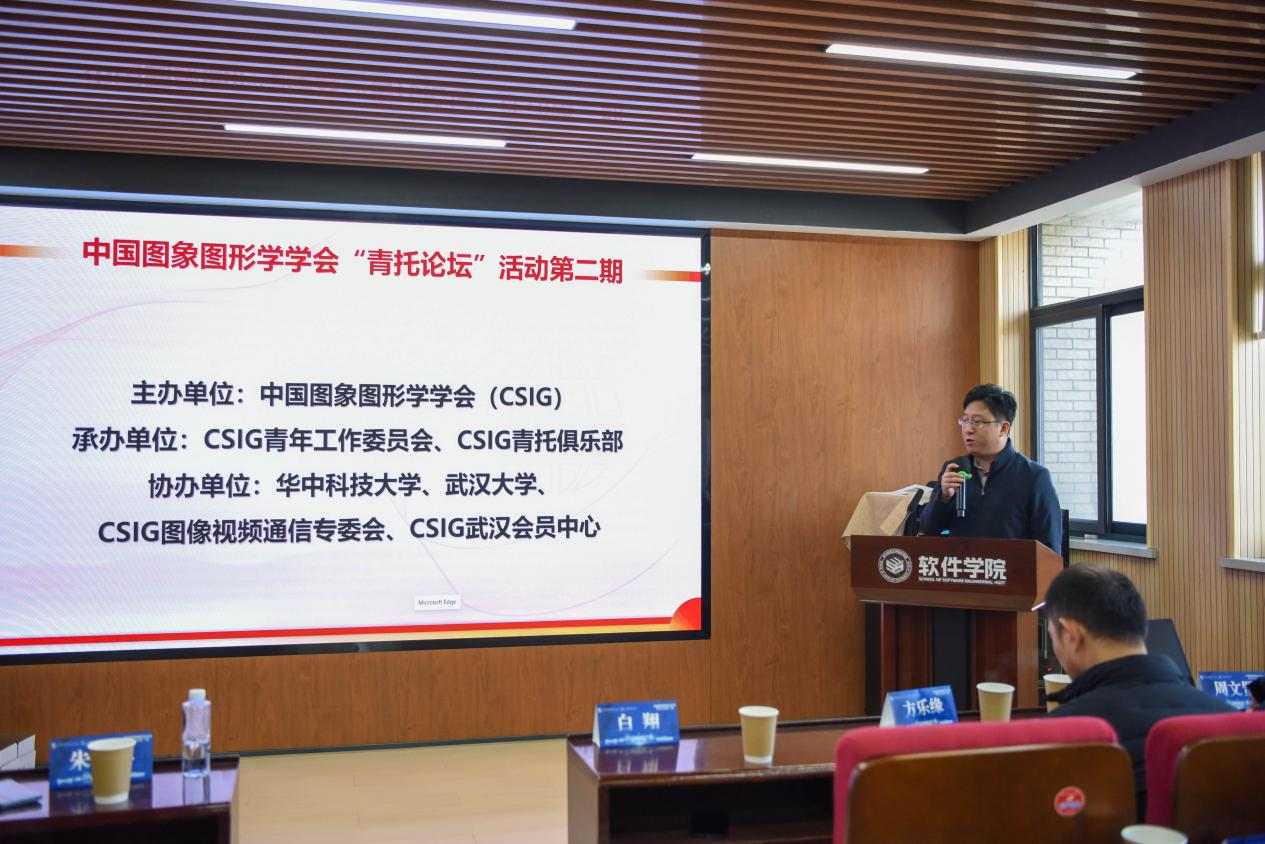
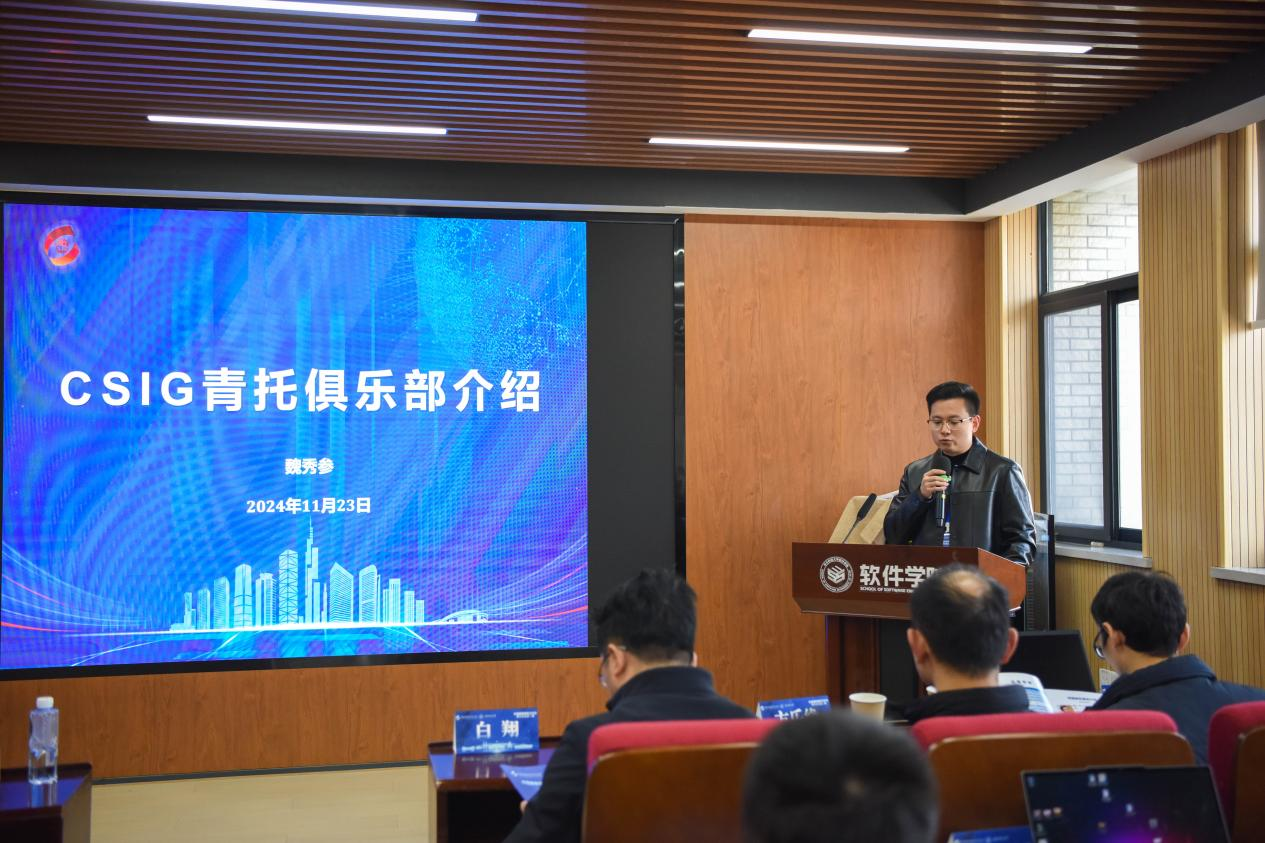
During the presentation session, multiple experts shared their latest research highlights.
Professor Zhou Beiji from Central South University delivered a report titled Medical Artificial Intelligence and Its Introduction. After a brief review of AI development and breakthroughs, he emphasized the practical and innovative application of medical AI in typical scenarios.
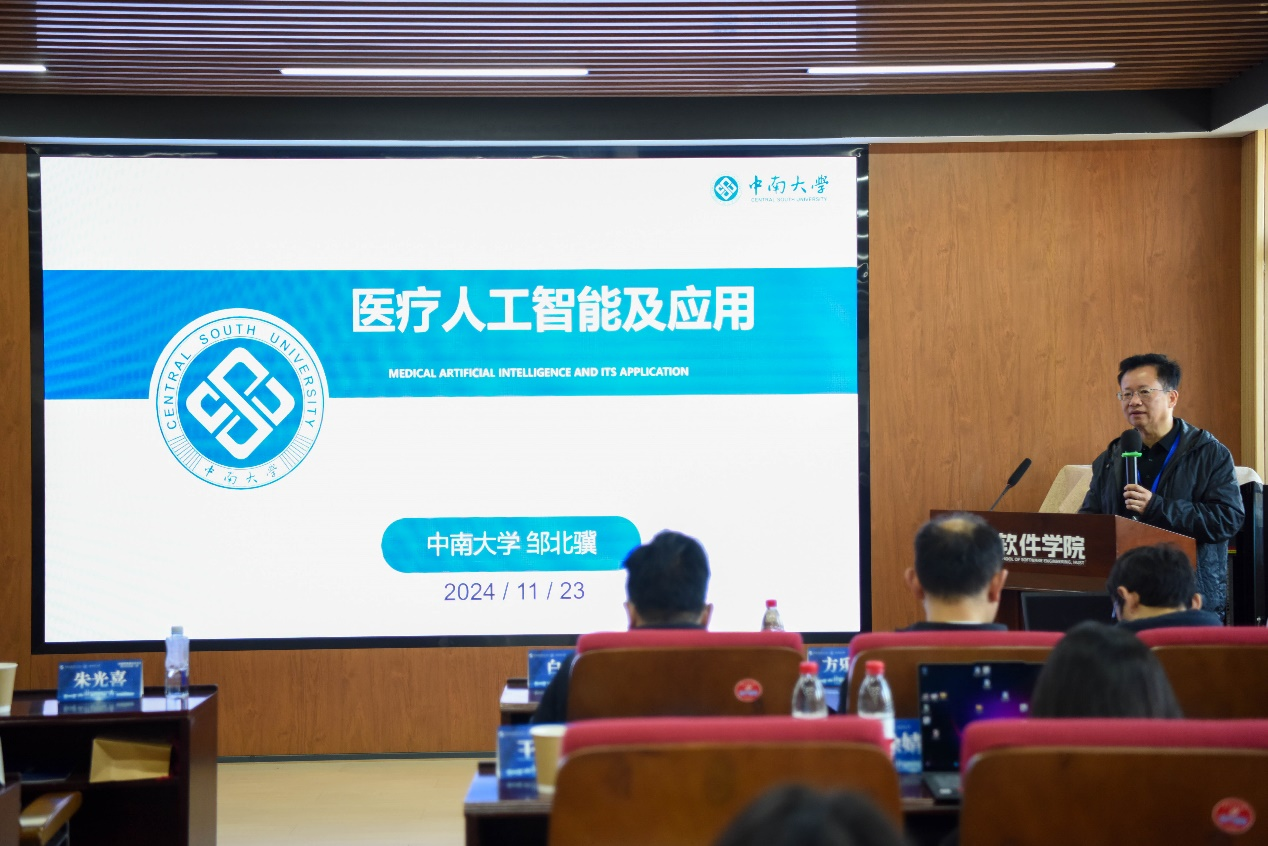
Professor Fang Leyuan from Hunan University presented a report titled Resource-constrained Remote Sensing Image Processing. He started by highlighting the wide application of deep learning in remote sensing image processing and analysis. However, the technology is largely impeded in real application scenarios owing to limited resources. To tackle the challenges, he proposed three innovative methods.
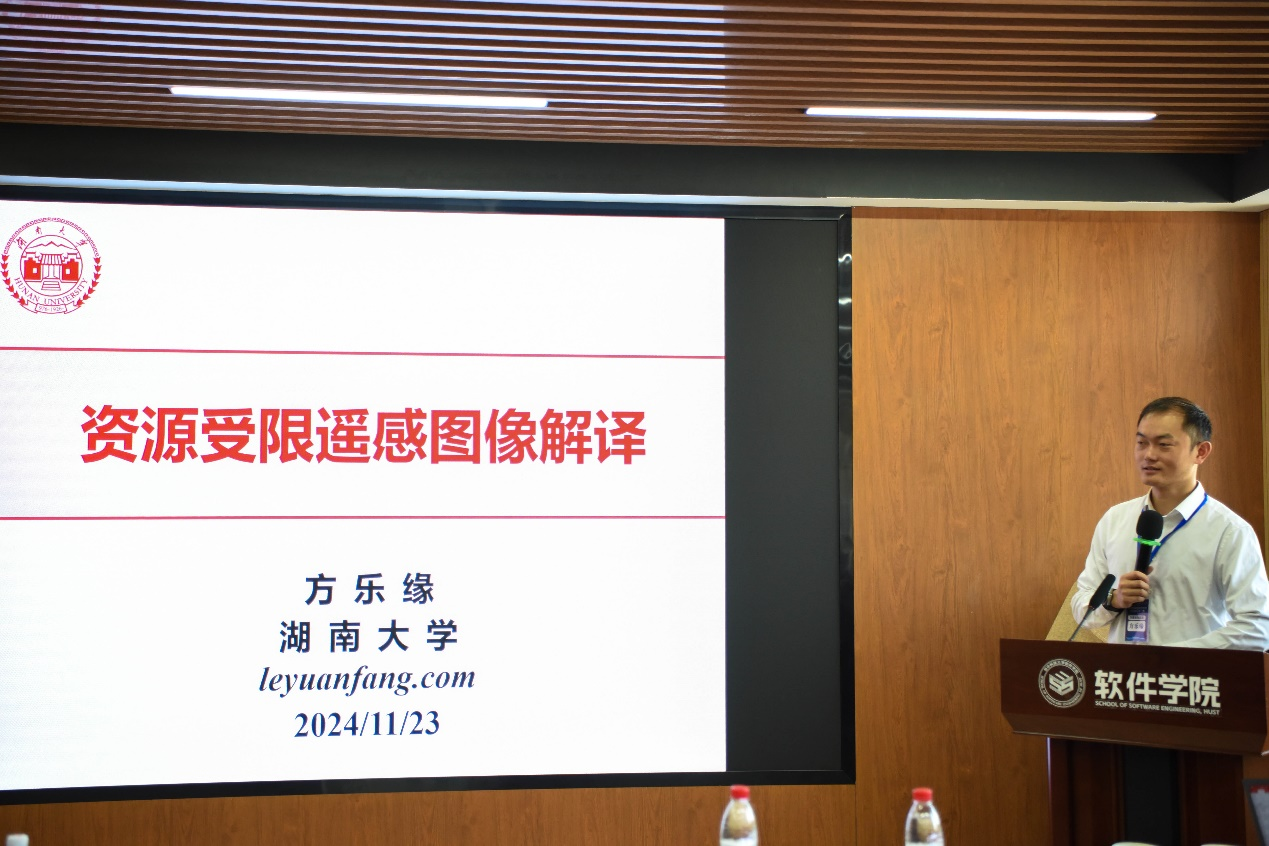
Focusing on Embodied Intelligence Exploration Based on Vision-Language Navigation, Professor Chang Xiaojun from University of Science and Technology of China delved into research frontiers in embodied intelligence. His report shed new light on the technology’s development.
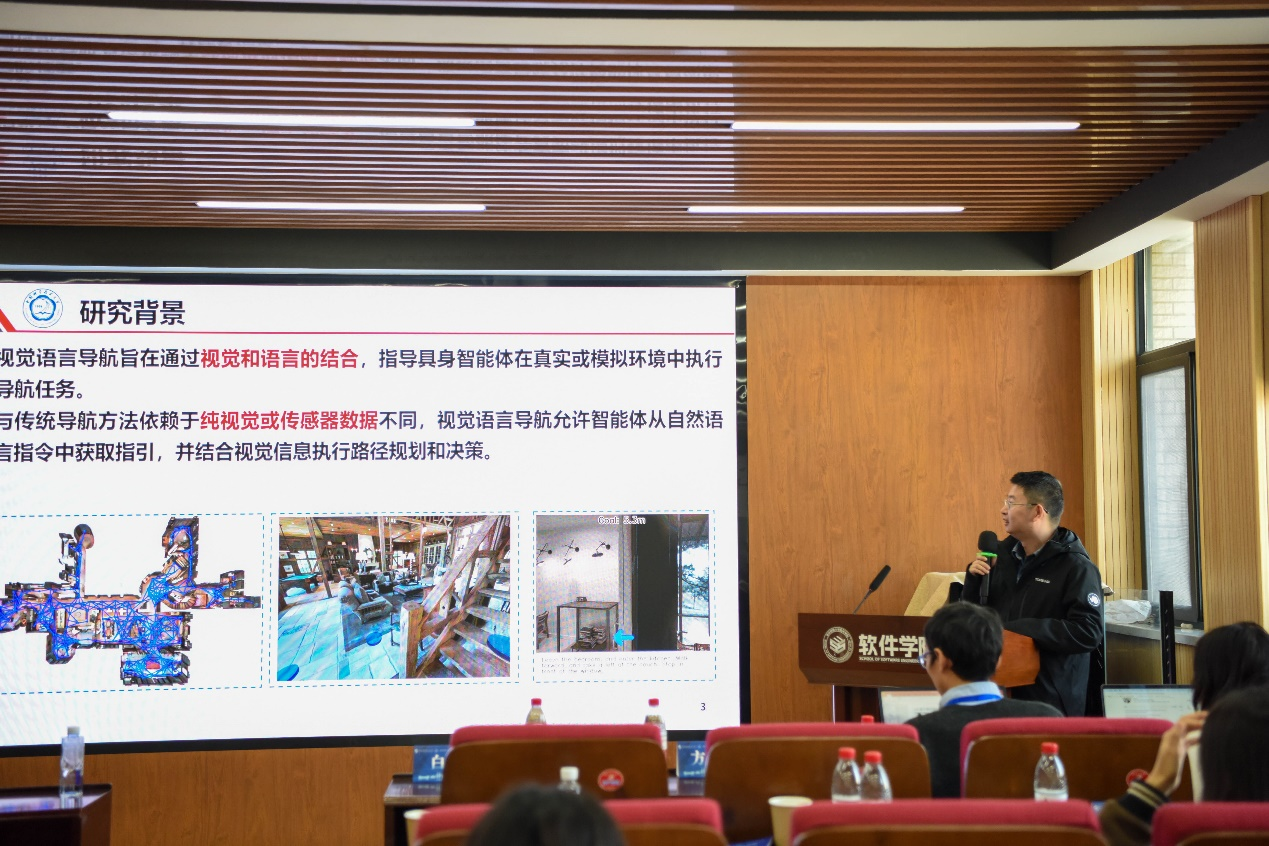
In his report themed by Trustworthy Visual Analysis in Adversarial Environments, Professor Wang Nannan from Xidian University emphasized that big data and AI also pose significant risks and challenges while driving industrial and social progress. To this end, he put forward a series of methods to enhance the credibility of deep learning systems.
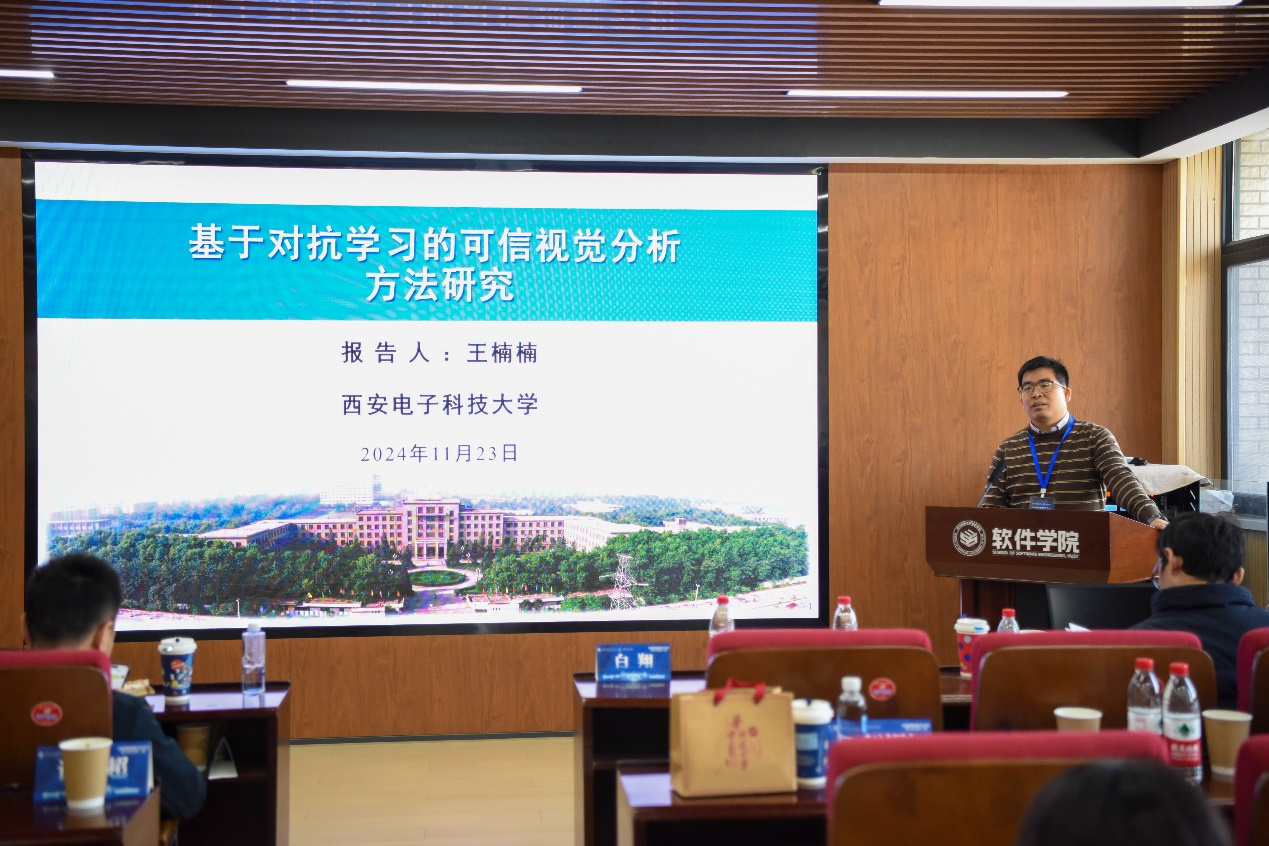
Professor Zhou Wengang from University of Science and Technology of China gave a report of Intelligent Sign Language Q&A System. He introduced innovative outcomes his research team made in key technologies powering the system. He demonstrated a prototype system tailored for government affairs consultation scenarios.
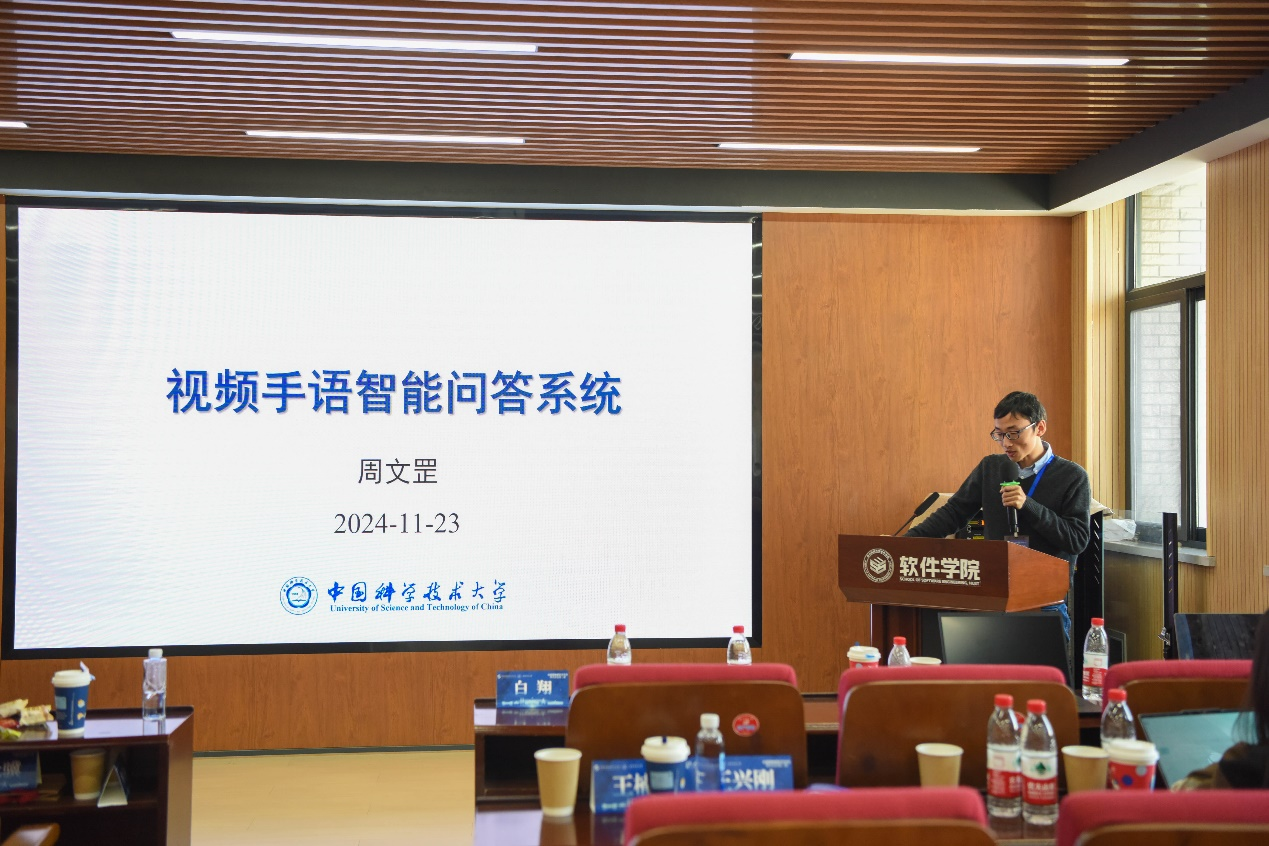
Professor Wei Xiucan from Southeast University delivered a report titled Fine-Grained Image Analysis and Its Preliminary Applications. In response to common challenges in the field, he elaborated on his team’s relevant research achievements and shared practical application in areas critical to people’s life and well-being and national urgent needs.
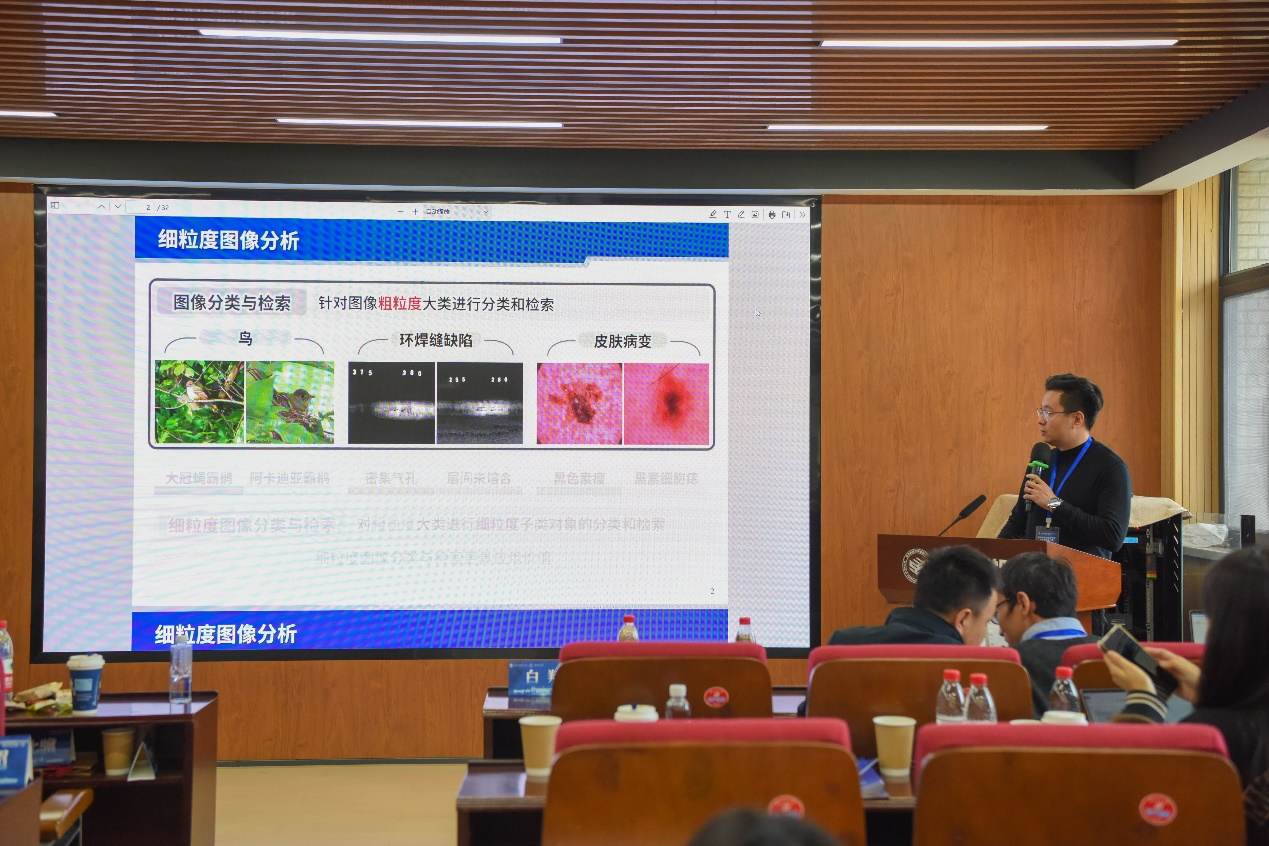
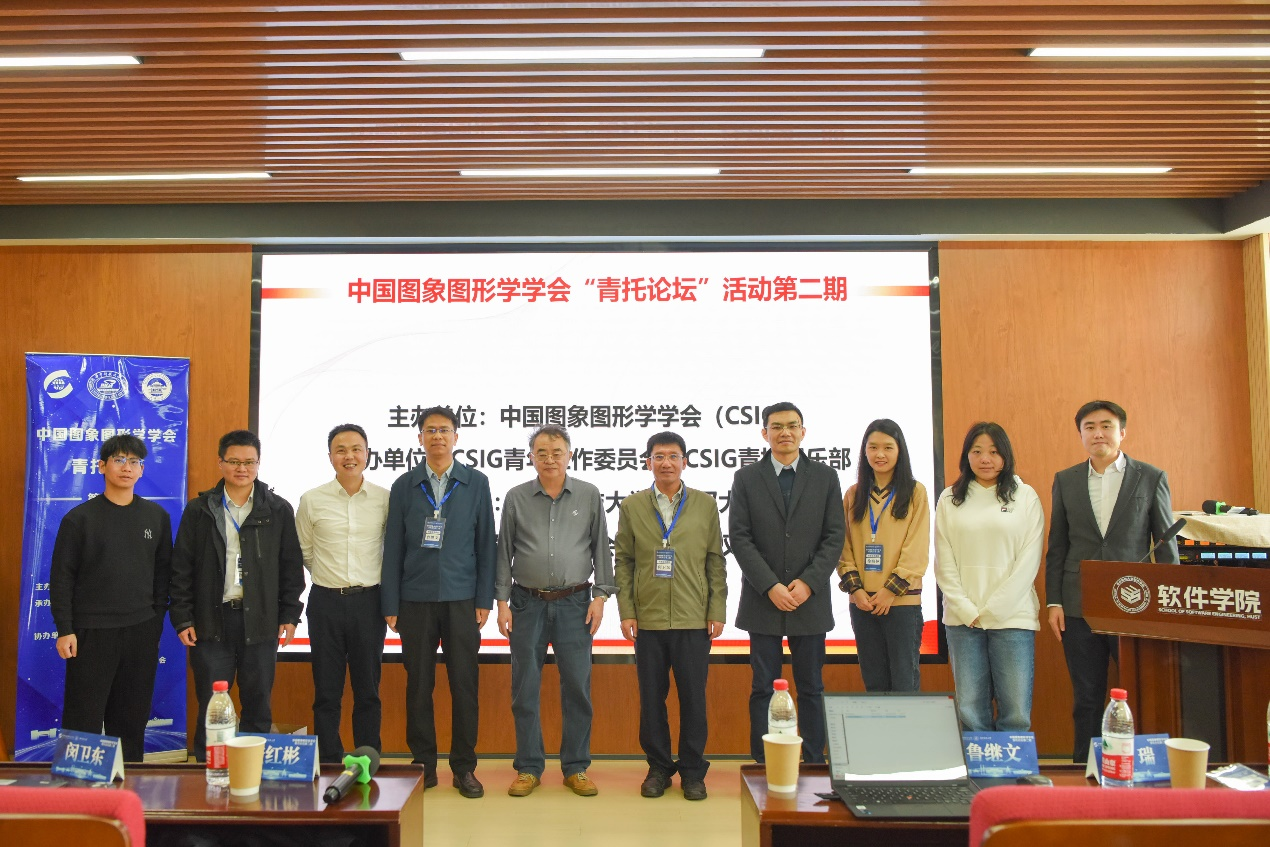
Professor Zha Hongbin from School of Intelligence and Science at Peking University presented a report of Embodied Vision and SLAM: Pathways for Online Learning. He introduced online learning-based approaches to SLAM challenges and shared his team’s latest research accomplishments.
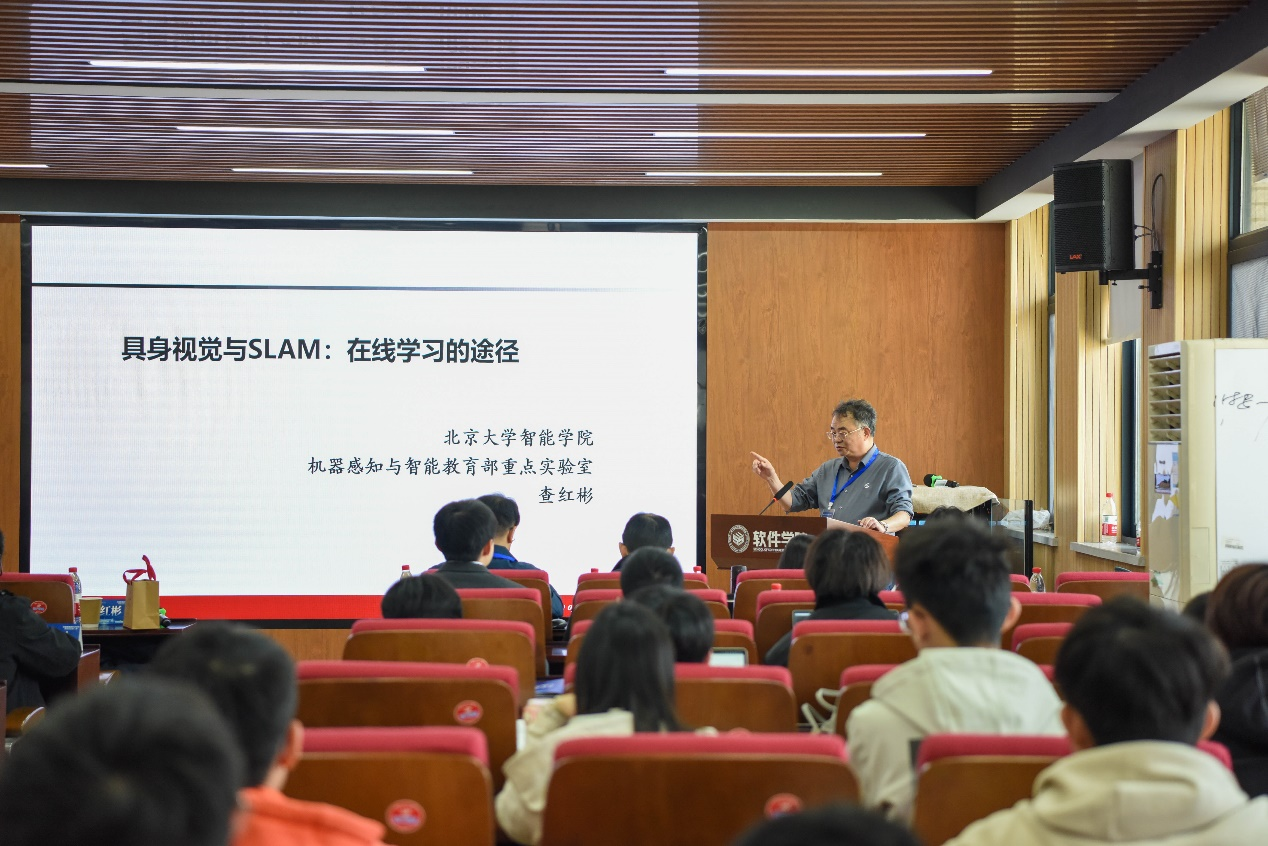
Professor Lu Jiwen, a tenured full professor at Tsinghua University, presented an academic report on Visual Perception and Embodied Intelligence. His report comprised a review of major research progress in visual perception and embodied intelligence and a outlook for the technology’s development and application in various sectors.
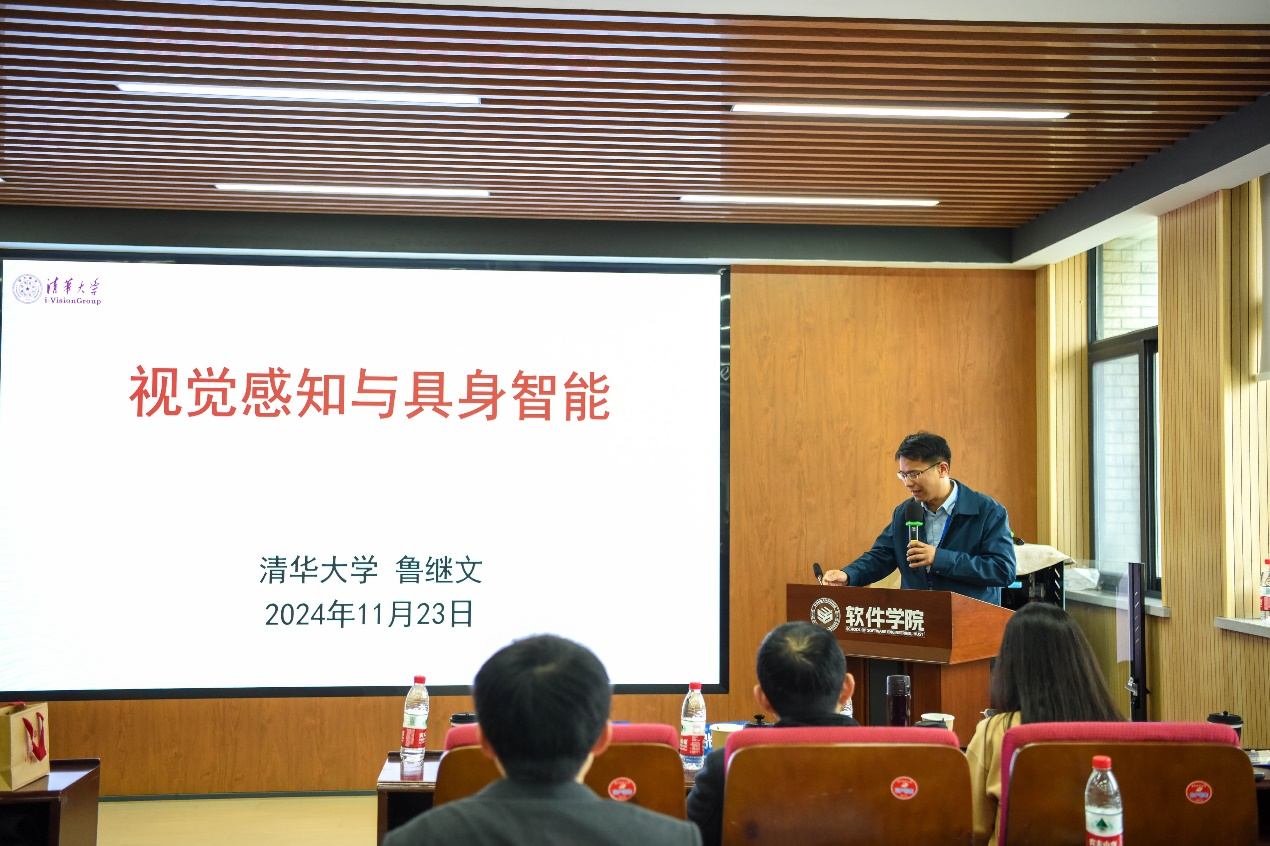
Professor Lu Jiwen, a tenured full professor at Tsinghua University, presented an academic report on Visual Perception and Embodied Intelligence. His report comprised a review of major research progress in visual perception and embodied intelligence and a outlook for the technology’s development and application in various sectors.

Professor Zhang Rui from School of Computer Science & Technology at HUST gave a report on Recommendation-Oriented Multimodal Generation. The report presented an overview of cutting-edge advancements in personalized multimodal generation. It also explained how large language models (LLMs) could integrate personalized user preferences into multimodal content generation, enabling AI systems to produce tailored outputs for users.
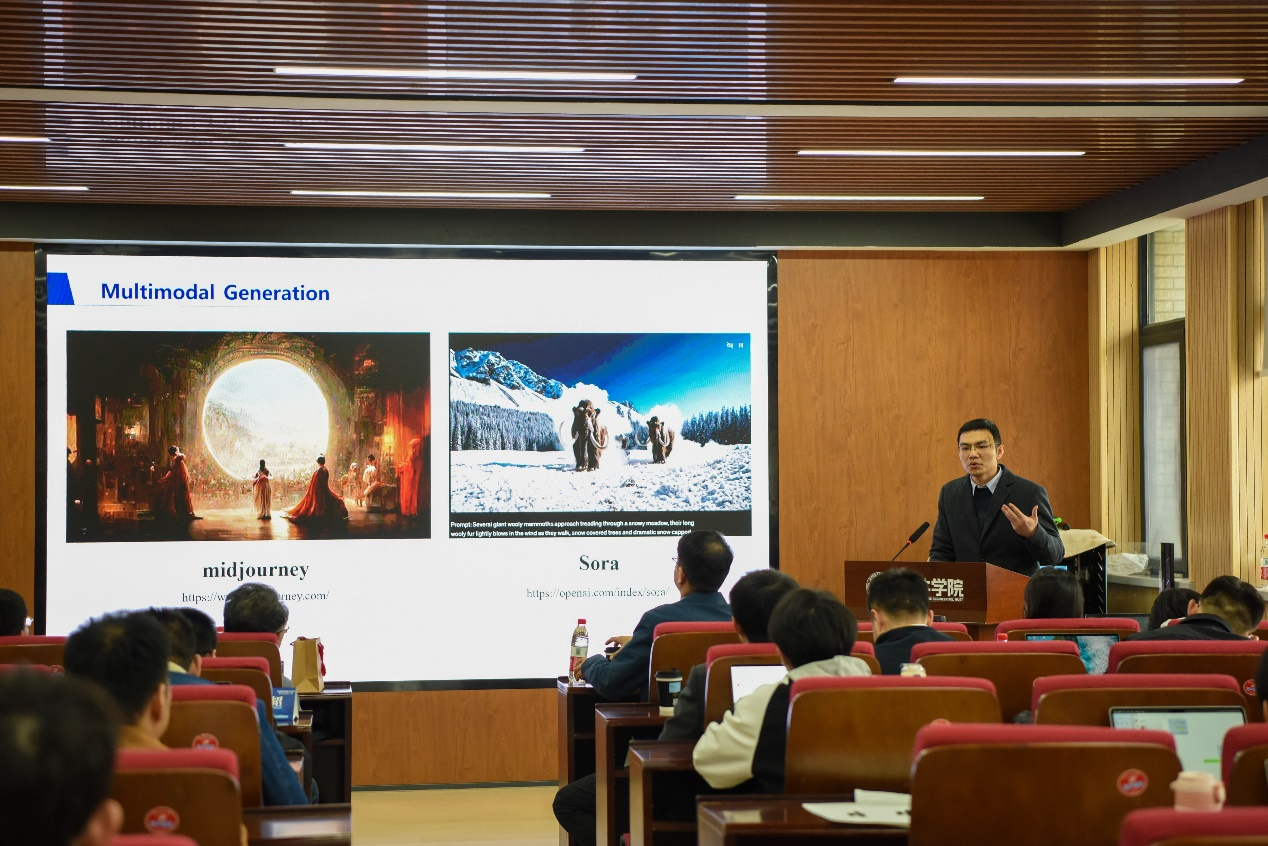
Professor Min Weidong from Nanchang University presented a report titled Novel Big Data Intelligence Methods in the Cyber Era. Drawing on his research outcomes in visual big data and smart cities, he detailed new solutions based on big data and deep learning and highlighted the application of these technologies in various fields. He also discussed the challenges in applying deep learning and big data to domains like human brain-inspired intelligence, 5G technology, and information security.
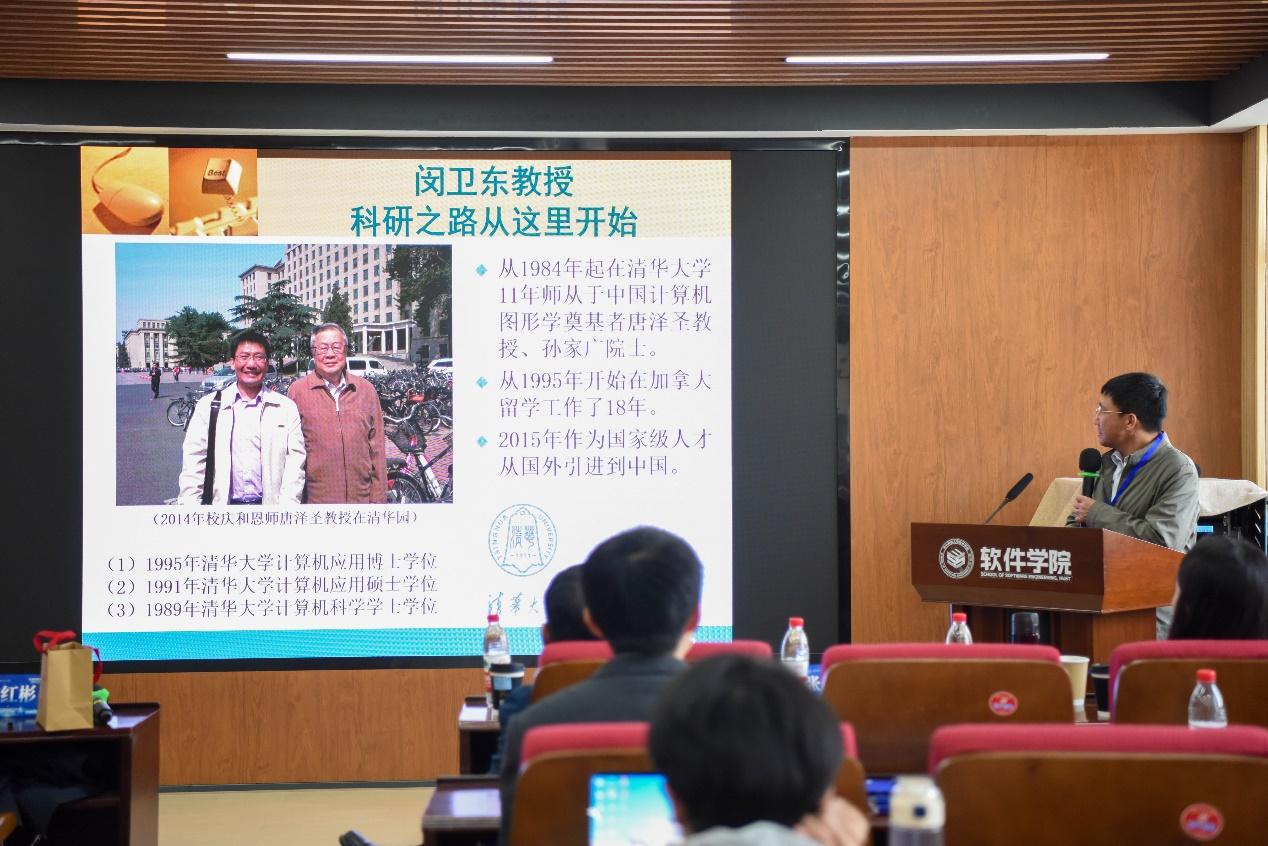
Associate Research Fellow Wang Xin from Tsinghua University delivered a report titled AIGC Research in Dynamic and Open Environments. He first addressed the key challenge generative AI faces in dynamic and open environments: how to update generative LLMs to accommodate emerging user needs? He proceeded to propose two innovative approaches for that and concluded by outlining the future research directions of generative AI.
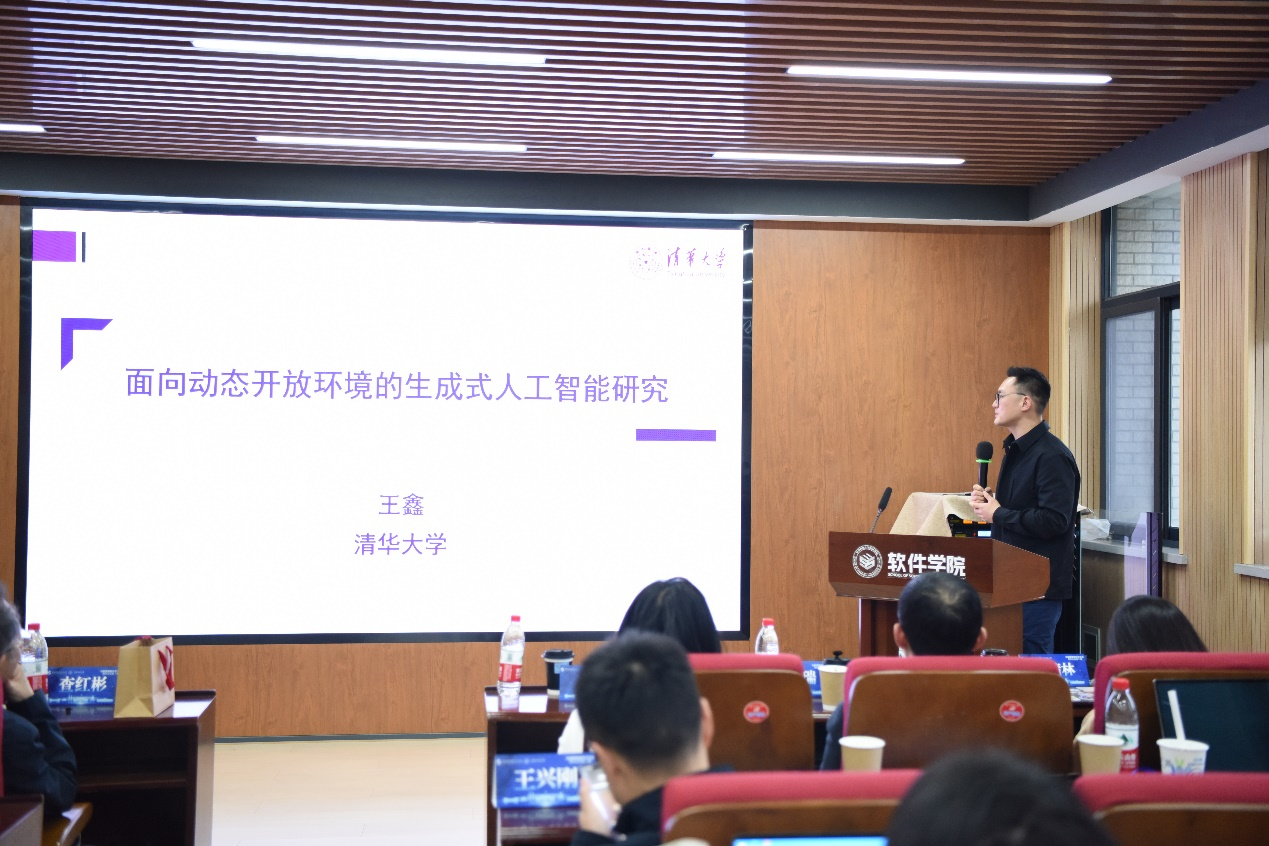
Research Fellow Liu Yang from Peking University delivered a report titled Research on Multimodal Perception Algorithms for Embodied Intelligence Scenarios. Her presentation explored multimodal perception algorithms in embodied intelligence contexts, focusing on how AI agents achieve temporal localization of historical events, perception and understanding of current environments, and future-oriented reasoning and planning.
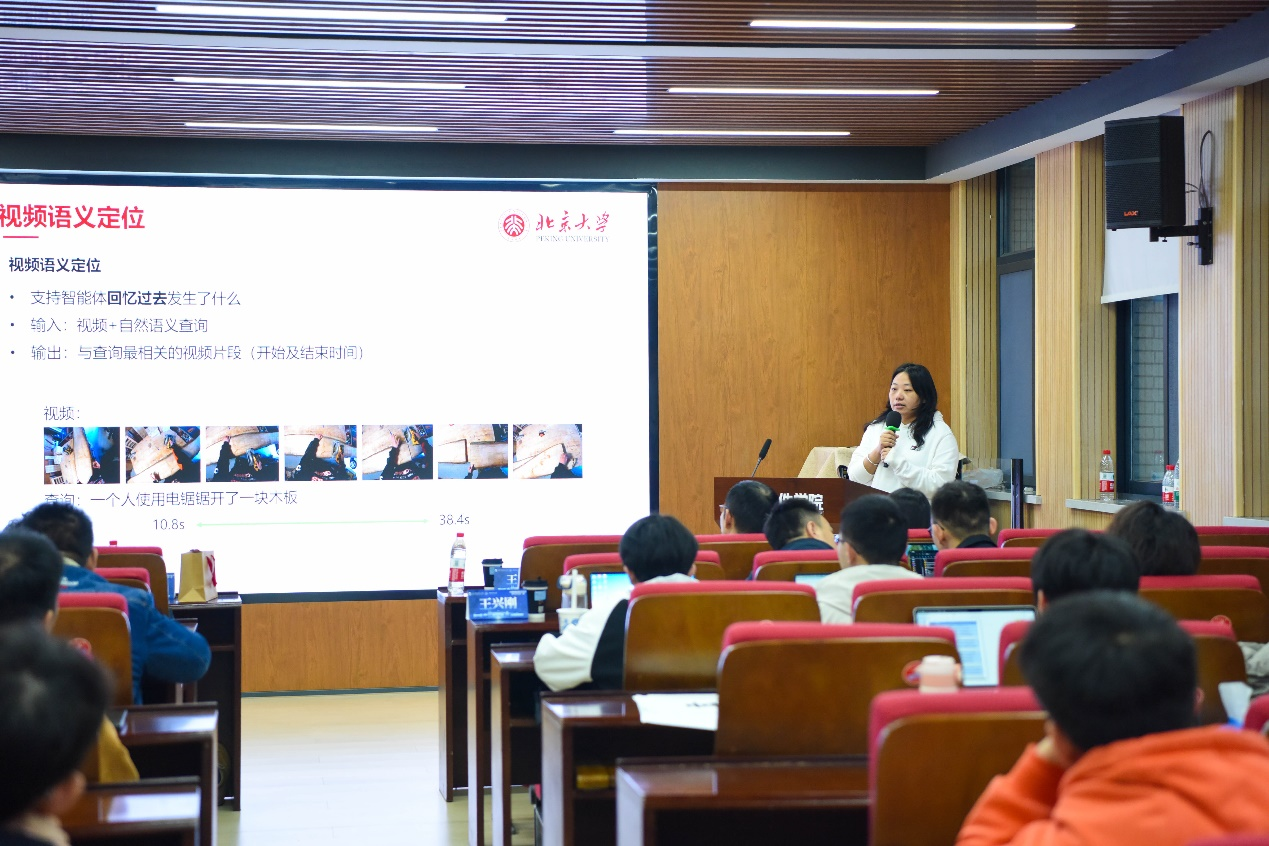
Associate Professor Xu Jinglin from University of Science and Technology Beijing presented a report titled Fine-Grained Motion Analysis for Action Understanding. The report focused on key challenges such as fine-grained action localization, 3D human posture estimation, and fine-grained motion quality assessment. It explored possible methodologies to address these challenges. Research outcomes outlined in the report were expected to be widely applied in such areas as sports training, rehabilitation therapy, physical fitness testing, and digital media production.
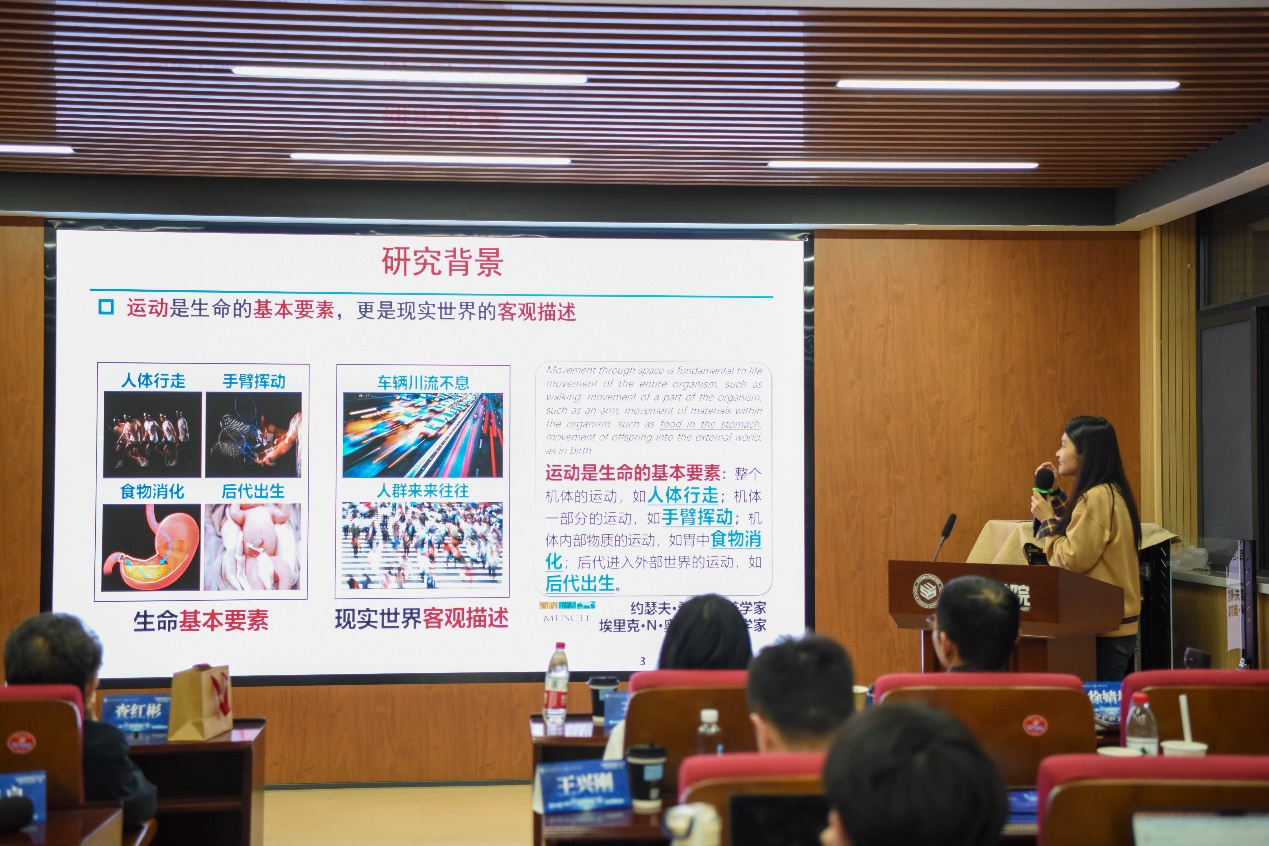
At the closing ceremony, Professor Wang Xinggang extended heartfelt gratitude to all speakers and guests and expected to have more academic collaboration and produce more young talents. The event not only provided a platform for young scholars and experts to exchange and collaborate with each other but also fostered new drivers for academic progress and talent development. By encouraging interaction among young researchers, the forum fulfilled its guiding principle of “Academic Excellence, Dedication to Growth.” Going ahead, the increasingly influential forum will continue to cultivate outstanding academic and industrial talents and pioneer new frontiers in scientific and technological innovation.

